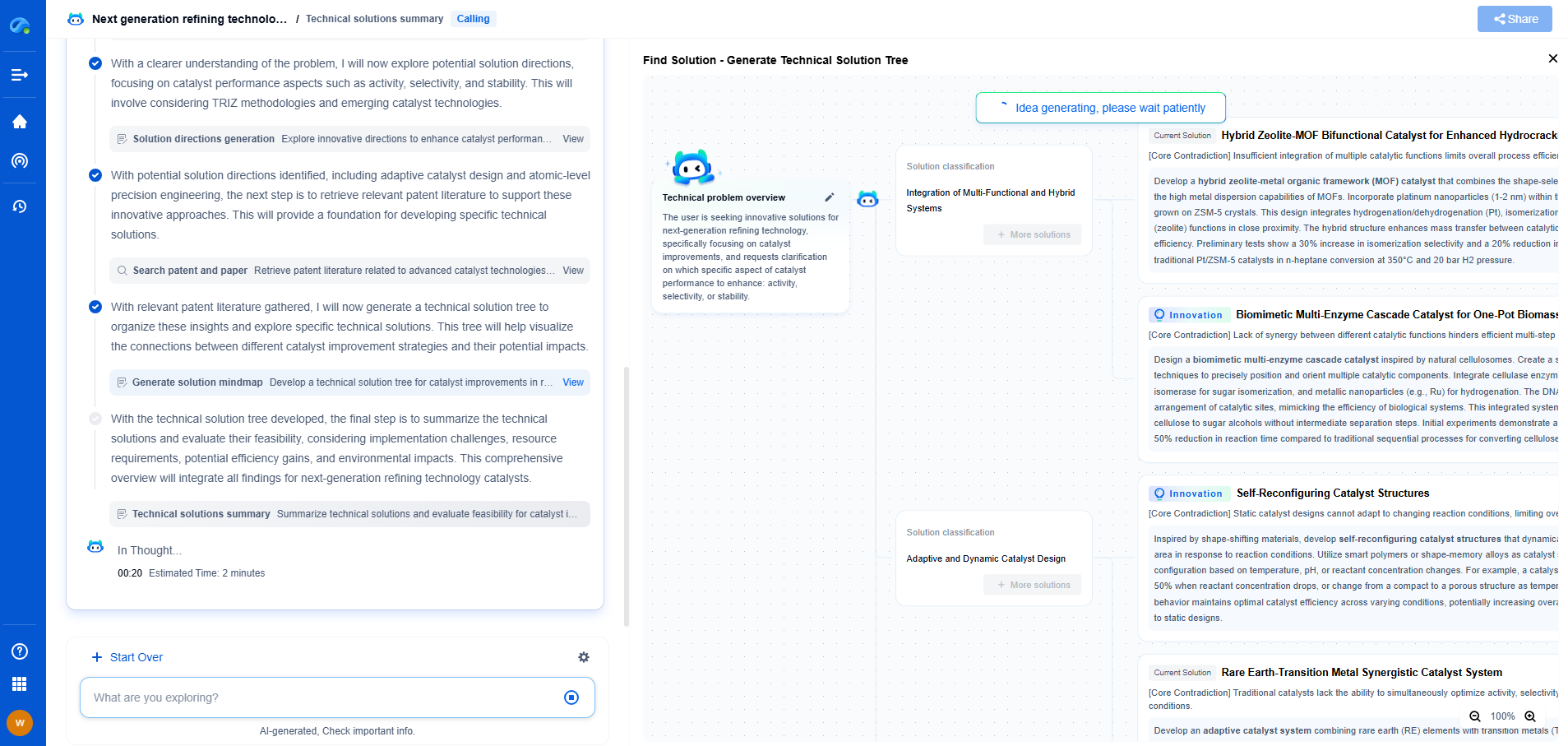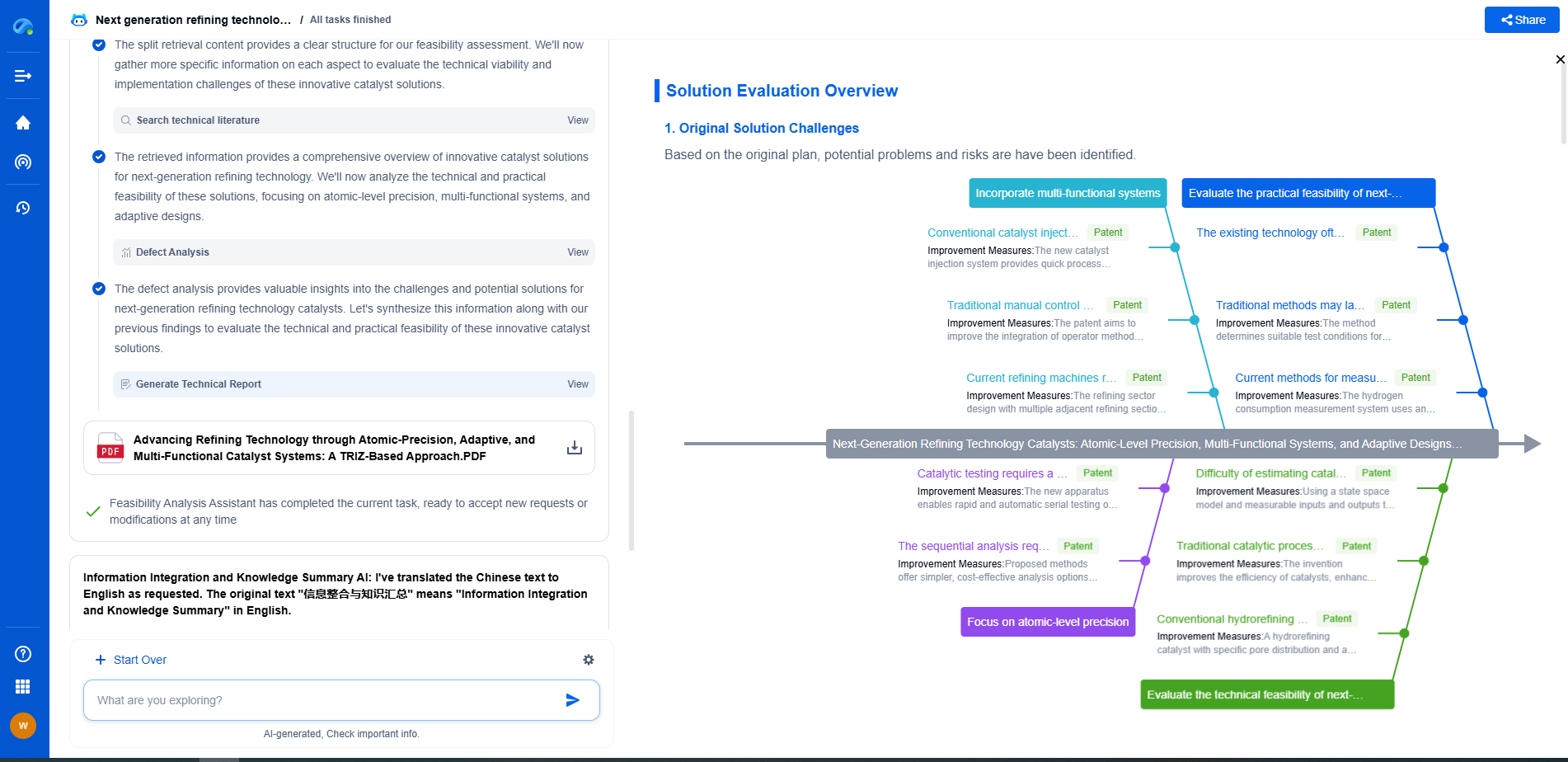Closed-loop vs open-loop geothermal systems: which to choose?
JUN 20, 2025 |
Geothermal systems are becoming increasingly popular as a sustainable and energy-efficient option for heating and cooling buildings. As interest grows, many people find themselves at a crossroads, trying to decide between closed-loop and open-loop geothermal systems. Both systems have their unique advantages and considerations, and understanding their differences is essential to making an informed choice.
What is a Closed-loop Geothermal System?
A closed-loop geothermal system circulates a fluid, typically a mixture of water and antifreeze, through a series of pipes buried underground. These pipes form a loop that is entirely sealed, which is why it’s referred to as "closed-loop." The heat exchange occurs with the ground via these pipes, making it a very controlled process. Closed-loop systems can be installed horizontally, vertically, or in a pond or lake, depending on the characteristics of the site and budget considerations.
Advantages of Closed-loop Systems
1. **Consistent Performance**: One of the primary advantages of closed-loop systems is their ability to deliver consistent performance. Since the loop is isolated from the external environment, it is less susceptible to variations in water quality or availability.
2. **Low Maintenance**: These systems require minimal maintenance since there is little interaction with the external environment. The sealed nature of the system reduces the likelihood of contaminants entering the system.
3. **Versatile Installation**: Closed-loop systems offer versatility in installation options. Whether you have a large piece of land, a small plot, or access to a nearby pond, there is likely a configuration that suits your needs.
Considerations for Closed-loop Systems
1. **Higher Initial Cost**: The installation of a closed-loop system can be more expensive initially due to the extensive excavation required for the loop installation.
2. **Space Requirements**: Depending on the type of closed-loop system you choose, significant space may be necessary, particularly for horizontal loops.
Exploring Open-loop Geothermal Systems
In contrast, an open-loop geothermal system uses groundwater from a well as its primary source for heat exchange. The water is pumped into the heat pump, where it transfers its heat before being discharged back into a separate well, pond, or surface water.
Advantages of Open-loop Systems
1. **Lower Installation Cost**: Typically, open-loop systems have a lower installation cost compared to closed-loop systems, as there is less excavation required for the system setup.
2. **High Efficiency**: Open-loop systems can be highly efficient in areas with abundant groundwater. The constant temperature of groundwater ensures that the system operates efficiently throughout the year.
3. **Minimal Land Requirement**: Since open-loop systems do not rely on extensive underground piping networks, they require minimal land space.
Considerations for Open-loop Systems
1. **Water Quality and Regulations**: The performance of open-loop systems heavily depends on water quality. Hard water or water with high mineral content can lead to scaling and require additional maintenance. Additionally, local regulations regarding groundwater use must be considered.
2. **Environmental Impact**: While using natural water resources, open-loop systems may have environmental impacts, especially if not properly managed. Ensuring that the discharge water is returned responsibly is crucial.
Which System Should You Choose?
Deciding between a closed-loop and an open-loop geothermal system largely depends on your specific circumstances, including budget, land availability, local water resources, and environmental regulations. If you have ample space and desire a low-maintenance system with a predictable performance, a closed-loop system may be the better option. However, if you're looking for cost-effectiveness and have access to a reliable groundwater source, an open-loop system might be more suitable.
Final Thoughts
Both closed-loop and open-loop geothermal systems offer sustainable heating and cooling solutions, each with distinct advantages and challenges. By evaluating your property’s characteristics and considering long-term benefits alongside initial costs, you can make an informed decision that best aligns with your energy goals and environmental values.
Navigating the Complexities of Drilling Innovation? Let AI Do the Heavy Lifting
In an industry where subsurface conditions, materials science, and drilling dynamics evolve rapidly, staying ahead of technical innovation and protecting your intellectual property can be overwhelming.
Patsnap Eureka, our cutting-edge AI assistant, is built for R&D and IP professionals in high-tech industries like drilling technologies. Whether you're optimizing rotary steerable systems, evaluating high-temperature materials, or exploring next-gen automation in directional drilling, Eureka enables real-time analysis of the latest patents, technology landscapes, and competitive movements—all from one intelligent, intuitive platform.
Ready to accelerate your development cycle and make strategic decisions with confidence? Explore Patsnap Eureka today—where smart drilling starts with smarter insights.
- R&D
- Intellectual Property
- Life Sciences
- Materials
- Tech Scout
- Unparalleled Data Quality
- Higher Quality Content
- 60% Fewer Hallucinations
Browse by: Latest US Patents, China's latest patents, Technical Efficacy Thesaurus, Application Domain, Technology Topic, Popular Technical Reports.
© 2025 PatSnap. All rights reserved.Legal|Privacy policy|Modern Slavery Act Transparency Statement|Sitemap|About US| Contact US: help@patsnap.com

